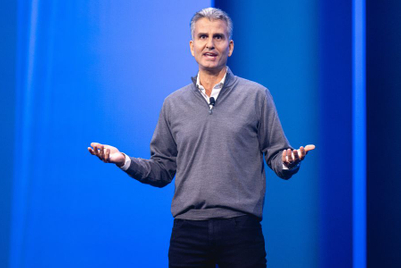
SHANGHAI - The first paying guests will trot into Shanghai Disneyland at noon on Thursday, after a few weeks of trial operations and a two-day grand opening celebration for VIPs, starting today.
The festivities include the global premiere of the first-ever Mandarin production of the Broadway hit The Lion King; a gala concert led by composer Tan Dun who is known for film scores including Crouching Tiger, Hidden Dragon; a dedication ceremony in front of the Enchanted Storybook Castle; and a donation of US$3.1 million (RMB 20 million) to fund Disney-themed play spaces at children’s hospitals across China.
Despite those goodwill gestures, Chinese netizens have been showing negativity on Shanghai Disney Resort's Weibo account regarding high ticket prices, malfunctioning rides and six-hour queuing times during the resort's trial operations.
In the lead-up to the park’s opening, Disney has repeatedly emphasised its ticket prices in China are its lowest in the world, but analysts have pointed out they still represent a large chunk of income for the average resident in China. On weekends and peak periods, people pay RMB 499 (US$76), and RMB 370 (US$56) on other days.
Visitors complained about highly hyped rides like the Tron Lightcycle Power Run needing six hours to queue for and the Pirates Of The Carribean breaking down during trial-operation days, trapping them in "icy cold water for 40 minutes".
Disney's first mainland Chinese attraction is its sixth worldwide, including Asia presence in Tokyo and Hong Kong. Of all the overseas locations outside the US, only Tokyo has been profitable, according to Bloomberg.
Hong Kong Disneyland, formed in 1999 as a joint venture between the HK government and the Walt Disney Company, laid off nearly 100 staff in April this year, arousing public concern as it was the first cutback since its opening in 2005.
The reason given was poor business performance, probably related to the woes of many Hong Kong retailers who have seen a dramatic drop in sales to mainland tourists. The Hong Kong government maintained the resort will still be appealing despite the opening of Shanghai Disneyland.
The market positioning of Shanghai Disneyland is meant to be slightly different from Hong Kong's, targeting mainland citizens around the Yangtze River Delta region, while Hong Kong's main visitor source markets are from the local community, Southeast Asia and Southern China, according to Disney.
Resonance China’s Jerry Clode recently wrote that the challenge for Disney will be to leverage its substantial cultural capital to ensure the brand is far more than a castle backdrop for family selfies.
As Disney raises the bar to new heights, brands across different categories related to domestic tourism, entertainment and education, will have to improve as well. Unless brands develop a strategic response to the Disney effect, they face the possibility of being considered a "compromise" by local Chinese families, Clode wrote.
The Shanghai resort's opening is the result of a long collaborative relationship with the Shanghai Municipal Government and joint venture partner Shanghai Shendi Group. It broke ground in 2011.


.jpg&h=334&w=500&q=100&v=20250320&c=1)



.png&h=334&w=500&q=100&v=20250320&c=1)

.png&h=334&w=500&q=100&v=20250320&c=1)

.png&h=334&w=500&q=100&v=20250320&c=1)

.png&h=268&w=401&q=100&v=20250320&c=1)
.jpg&h=268&w=401&q=100&v=20250320&c=1)





